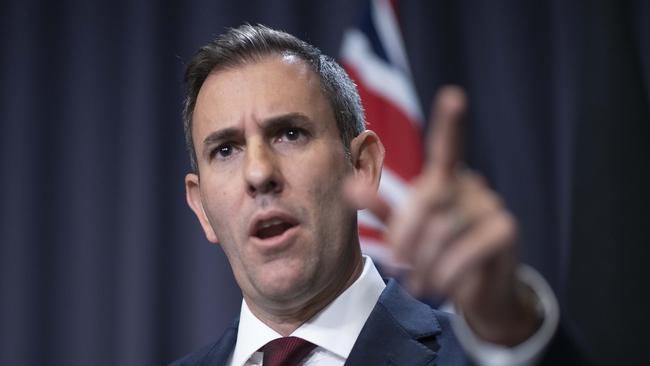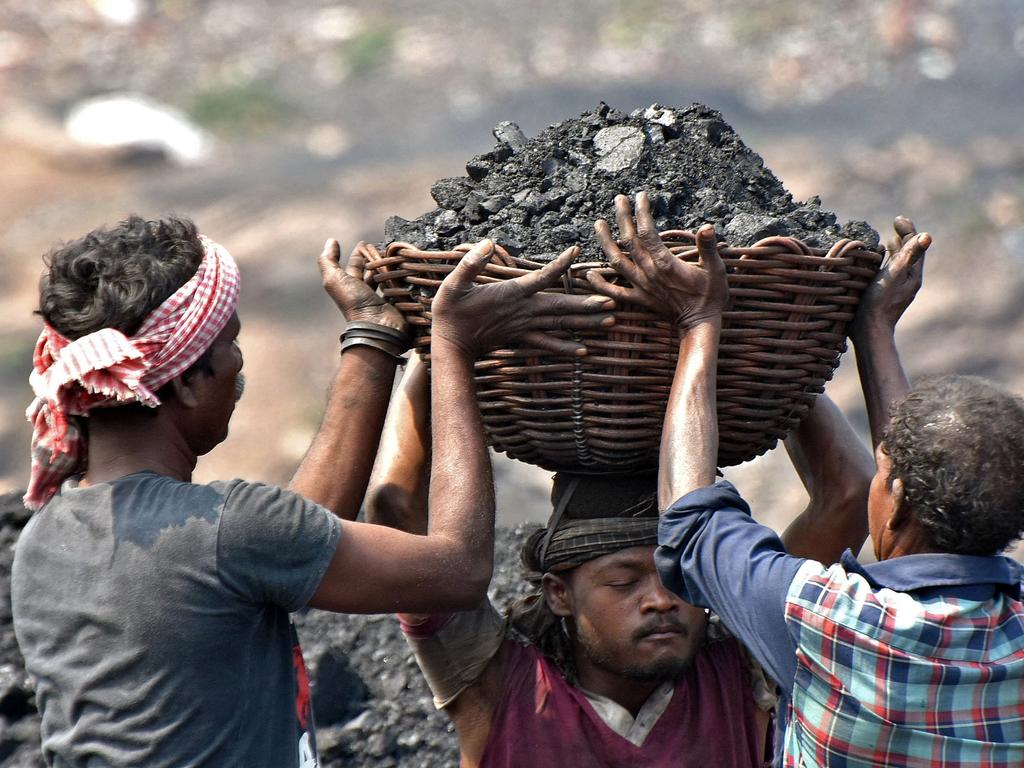Electricity costs ‘are powering inflation’, says Jim Chalmers
Electricity bills have risen by $300 for households and $1500 for small businesses since April, as Jim Chalmers warns that rising energy prices are risking pushing inflation higher.

Electricity bills have risen by $300 for households and $1500 for small businesses since April, as Jim Chalmers warns that rising energy prices are risking pushing inflation higher than expected into the new year.
The Treasurer said the government planned further intervention in the gas market to push down domestic prices, signalling reform of regulations for LNG producers and a price trigger to redirect exports to the domestic market.
Dr Chalmers said “more can be done” to put downward pressure on gas prices than the heads of agreement struck between the government and producers to guarantee sufficient domestic supply next year.
“There is more that governments can do, and there will be more that we do,” he said.
“The way our gas industry regulation is set up has not been delivering the kinds of outcomes we want to see.”
The government has been considering reforming the Australian Domestic Gas Security Mechanism so the export trigger can be invoked when prices are too high, rather than its existing function to ensure there is enough supply.
With a major energy retainer warning that bills would rise by at least 35 per cent next year, Australian Competition & Consumer Commission chair Gina Cass-Gottlieb revealed electricity bills had increased by 25 per cent since April. “For electricity prices in the (national energy market), we have seen an increase of $300,” Ms Cass-Gottlieb said.
“That is a 25 per cent increase since April in the residential median bill. For small business, we have seen an increase of $1500.”
Ms Cass-Gottlieb said a range of factors was behind the surge in energy prices, including the war in Ukraine, flooding in coalmines and unexpected outages at major generators.
Labor went to the election vowing to lower electricity bills by $275 by 2025.
Asked about whether the government stood by its pre-election claims on lowering energy costs, Dr Chalmers said the former government’s policy failure, global factors and extreme weather meant “electricity prices are going up much faster than what we would like to see”.
“When it comes to our commitments, we have made it very clear that adding more sources of cleaner, cheaper and more reliable energy is the medium and long-term solution to this rather than the problem,” he said.
Alinta Energy chief executive Jeff Dimery – who predicts a 35 per cent increase in electricity tariffs – said it was time to stop pretending the transition to a zero emissions energy sector would lead to lower power prices in the next few years.
Dr Chalmers said rising electricity prices would put pressure on inflation, which Treasury in July forecast would peak at 7.75 per cent in December before falling to 5.5 per cent by the middle of next year.
“A bigger and bigger part of this inflation problem over time will be what happens with power prices,” Dr Chalmers said. “Inflation has a number of constituent parts … but electricity is the one I think most about.
“I think it is going to be the most problematic aspect of it, of our inflation problem over the course of the next six or nine months.
“And I’ve had a number of conversations with Treasury and with others about it.”
The International Energy Agency said Australia was suffering from a broader spike in electricity prices in Europe, while pointing out the damage was mostly down to Russia’s invasion of Ukraine rather than a changing energy mix to renewables.
“Anyone looking at the wholesale prices in Europe can see we’ve had very extraordinary prices in recent months,” IEA chief economist Tim Gould told a business conference on Tuesday.
“What we are keen to do is also make sure there’s no misunderstanding about the underlying reasons for upward pressure on electricity prices.
“In our perspective, more than 90 per cent of the increase in project costs worldwide has come from higher underlying prices.”






To join the conversation, please log in. Don't have an account? Register
Join the conversation, you are commenting as Logout